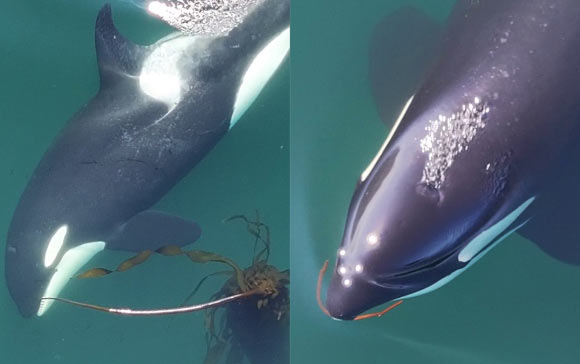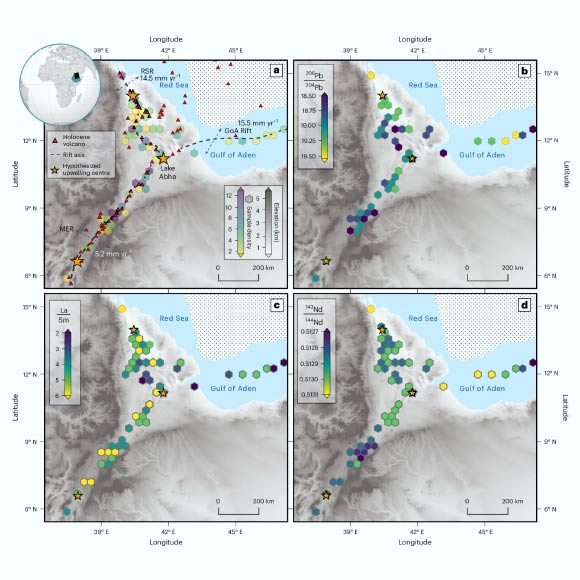Now Reading: Orcas Craft Kelp Tools for Grooming, Study Reveals
-
01
Orcas Craft Kelp Tools for Grooming, Study Reveals
Orcas Craft Kelp Tools for Grooming, Study Reveals

Quick Summary
- Researchers discovered southern resident killer whales in the Salish Sea using and manufacturing bull kelp as grooming tools.
- The behavior, termed “allokelping,” involves breaking off kelp stalks and rolling them between their bodies during social interactions.
- This practice was observed across all age groups, sexes, and whale social structures but was more common among relatives or similarly aged partners.
- Grooming may have hygienic benefits; whales with more dead/molting skin seem to engage in allokelping more frequently enough. Bull kelp’s antibacterial properties might enhance skin health during these interactions.
- Despite 50 years of studying this critically endangered population with fewer than 80 individuals left, this behavior was detected only due to improved aerial observation methods introduced since 2018.
- unclear whether such tool use is exclusive to this population or exists among other marine mammals.
[Image: Allokelping observed in southern resident killer whales (Orcinus orca ater). Image Credit: Weiss et al.]
Indian Opinion Analysis
The finding of killer whales engaging in innovative tool-making for grooming adds depth to understanding animal intelligence and social dynamics beyond terrestrial species like primates. For India, it highlights the global importance of advancing ecological studies through technology like high-resolution drones – a method equally applicable for studying endangered aquatic populations in Indian waters such as freshwater dolphins and dugongs. As climate change pressures marine ecosystems globally, insights such as these underscore potential avenues for exploring behaviors that aid animal survival or health amidst environmental stressors.


























